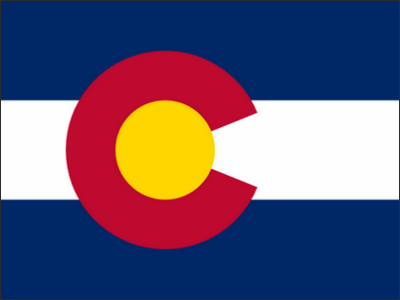Online Divorce in Colorado

For those seeking an inexpensive divorce in the state of Colorado, online divorce is an easy, affordable and fast solution. Online divorce may be appropriate for couples who have an uncontested case.
The step-by-step process of preparing divorce documents at Onlinedivorce.com makes it easy for you. We help prepare all of the necessary divorce forms and provide detailed written instructions on how to file your divorce in Colorado.
Our divorce documents preparation service can be a perfect solution for those who want to have their divorce papers completed quickly and without stress. Even though Colorado has unique divorce forms and filing requirements, our online system provides the exact forms necessary along with instructions on how to file. We have helped thousands of people prepare their divorce documents for filing.
If you and your spouse agree on the terms of the divorce and want an amicable dissolution to your marriage, why should the process get drawn out, and why should you spend money on lawyers? Online divorce is often cheaper, quicker and easier.
Online divorce can be a perfect option if you want to save money or hope to have your divorce finalized quickly to get on with your life. Preparing documents for divorce online in Colorado is fast becoming very popular because you can complete the documents in the comfort of your home.
Even if you think your case is too complex because you have children, own your own home or have other assets, you may still be able to prepare your documents online. Just start with our simple questionnaire, and we’ll provide you instructions for each step of the way.
The process at OnlineDivorce.com is 100% secure. We protect your information, and nothing is filed until you submit the divorce papers to the courthouse yourself. Filing for divorce in Colorado with the Onlinedivorce.com system can be a simple solution to a difficult situation.
Filing:
When you use OnlineDivorce.com, we help you fill out your divorce paperwork using a simple online questionnaire. You can fill it out alone or with the assistance of your spouse. Then, after getting the other spouse’s signature, the divorce forms may be filed at the local court. In Colorado, the plaintiff shall file with the courthouse in the county where either spouse currently resides.
The actual filing process is explained in our detailed court-filing instructions that we provide, along with your completed divorce forms. You can also obtain assistance from your local courthouse by calling or stopping by.
After the initial filing, you may need to follow up if there are any issues with your documents. When you use OnlineDivorce.com, we allow you to make small adjustments to your forms as requested by the court at no additional charge. Our goal is to help you obtain your divorce with as little hassle and stress as possible using our online divorce documents preparation service.
Residency:
Every state has specific requirements where divorcing couples must establish residency before filing for divorce. Colorado is no exception.
To file for divorce in Colorado, at least one of the spouses must have been a resident of the state for at least 90 days before filing for dissolution of marriage. The divorce may be filed in:
- The county where the responding party lives or
- The county where the petitioning party lives, but only if the respondent would be served in the same county or is not a resident of the state. [Colorado Revised Statutes; Article 10, Section 14-10-106 and Colorado Rules of Civil Procedure, Rule 98].
There are many ways to prove that residency has been established. The easiest way is if one or both spouses have a valid and current Colorado driver’s license, ID card, or voter’s registration card issued at least 90 days before filing for divorce. Actions that show intent to establish a permanent residence in Colorado include changing your mailing address, owning a house, and registering a car in the state.
Valid grounds to get divorce in Colorado

Grounds for an online divorce using OnlineDivorce.com are the same as they would be for any divorce within the State of Colorado. Grounds are merely the reason for divorce, and the state must approve them.
Unlike most states, Colorado no longer regards imprisonment, adultery, or other fault-based grounds as valid grounds for the dissolution of marriage. Thus, only no-fault divorce is recognized in the state.
The only acceptable ground for a divorce in Colorado is an irretrievable breakdown of the marriage. This no-fault ground can be used by any couple dissolving their marriage regardless of their actual personal causes for the breakup.
Custody of the child in Colorado

Joint or sole custody is determined based on the best interests of the child, without any regard to the gender of the parent, and after considering the following factors:
- The parents’ wishes;
- The preference of the child, if the child is of sufficient age and maturity;
- The desire and ability of both parents to allow for an open and loving relationship between the children and the other parent (but actions to protect a child from witnessing or suffering abuse shall not be considered for this factor);
- The child’s ability to adjust to his or her home, school, and community;
- The overall health of all individuals involved, given the fact that disability alone cannot be a basis to deny or restrict parenting time;
- The relationship that the children have with parents, siblings, and other family members (who significantly affects the child’s best interests);
- Any domestic abuse by either parent;
- Whether a parent’s prior involvement with the family shows a system of values, time commitment, and ongoing support;
- The geographic proximity of the parties to each other; and
- The ability of the spouses to put the needs of the child before their own needs.
Joint legal or physical custody can be awarded on the agreement of both parents if they submit a plan for custody. The plan submitted to the court for joint custody should include the following issues:
- Information regarding the location of each parent;
- The time during which each parent will have physical custody of the child;
- The known legal residence of the child;
- Information regarding the child’s education;
- A plan for the child’s religious upbringing, if any;
- Information regarding the child’s health care;
- Financial planning to provide for the child’s needs;
- A plan for holidays and vacations; and
- Notations regarding other factors that affect the physical or emotional health or well-being of the child.
The joint custody award will be based on all of the factors involved in a standard custody decision, along with the following additional factors:
- The ability of the parents to work together;
- Whether the prior pattern of involvement of the parents with the child reflects a system of values and mutual support indicative the parent’s ability to act as joint custodians and provide a positive and nourishing relationship with the child; and
- Whether an award of joint custody would promote more frequent or continuing contact between the child and each parent. [Colorado Revised Statutes; Article 10, Sections 14-10-123, 14-10-124, and 14-10-129]
Rules for spousal support in Colorado

Alimony, also known as spousal support, is sometimes ordered by the court to help one spouse live in a manner established during the marriage after the divorce.
Either spouse may be awarded support for a just period of time. If the spouses’ combined income is under $75,000.00, the monthly temporary maintenance to the lower-earning spouse will be 40% of the higher-earning spouse’s income - 50% of the lower-earning spouse’s income = the award.
If the spouses’ combined income is over $75,000.00, maintenance is only allowed if the spouse seeking maintenance:
- The spouse asking for alimony lacks sufficient property, including his or her share of any marital property, to provide for his or her needs;
- or the spouse asking for alimony is unable to support themselves through appropriate employment or has custody of a child, and the circumstances are such that the spouse should not be required to seek employment outside the home.
In a case like that, the award of maintenance is based upon the following factors:
- The time which would be necessary to acquire sufficient education and training to enable the spouse to find employment and that spouse’s future earning capacity;
- The standard of living enjoyed during the marriage;
- The length of the marriage;
- The ability of the spouse paying support to meet his or her needs while meeting those of the spouse seeking support;
- The financial resources of the spouse who seeks the maintenance, including marital property, apportioned to such spouse and such spouse’s ability to meet his or her needs independently;
- The age of the spouses;
- The physical and emotional health of the spouses; and
- Any custodial and/or child support responsibilities.
Maintenance payments may be ordered to be paid directly to the court for distribution to the spouse. [Colorado Revised Statutes; Article 10, Sections 14-10-114 and 14-10-117]
Mediation support in Colorado
The Colorado court may direct the divorcing spouses to attend mediation in any proceeding where child custody, parental responsibility, visitation, or child support are contested. Divorce mediation can also be used by any couple wishing to resolve disagreements in a controlled and peaceful setting, allowing the divorce to become uncontested.
For those seeking to prepare their divorce papers using OnlineDivorce.com, utilizing divorce mediation can be a great tool to smooth out disagreements and prevent the case from going to court. It can be the simplest way to assure a fast, easy and affordable online divorce.
Filing fees for divorce in Colorado
When you file your divorce papers, the court will charge filing fees that may vary by county. These costs are in addition to the cost of using OnlineDivorce.com. Please check with your local courthouse to determine the exact amount.
How long it will take
Use of the OnlineDivorce.com service usually takes between 30 minutes and two hours or more, depending on the complexity of your case. Start by filling out the questionnaire. You can do it in one sitting or save your progress and complete it at a later date. Whatever is most convenient for you.
Once you’ve received the documents complete, you will need to file them and get your spouse’s signature. More information regarding the finalization of the divorce case is provided once the paperwork has been completed and submitted to the court.
Frequently Asked Questions
Can I really file for divorce in Colorado without a lawyer?
Colorado laws allow people to represent themselves in the courts of the state. So, in a divorce case, both parties are eligible to file for divorce as self-represented litigants, without seeking a lawyer's assistance.
Spouses who choose to represent themselves must meet the same Colorado residency and filing requirements as other divorcing spouses and are bound by the same rules and procedures as attorneys. Thus, when thinking about arranging a DIY divorce in Colorado, the spouses should consider whether they are ready to deal with all the legal matters of the procedure on their own. If the case is contested, do-it-yourself divorce is not typically recommended. Since contested cases have many pitfalls, representing yourself (especially if the opponent hires a qualified attorney) can adversely affect the outcome of the proceeding.
In contrast, if both spouses want to arrange a low-conflict divorce and resolve all their disputes out-of-court, a do-it-yourself divorce can be an excellent option to save money. To get an uncontested divorce, the spouses need to complete the necessary paperwork and write up a Marital Settlement Agreement. Besides this, in Colorado, they have the option to file a divorce petition jointly, which makes the process more straightforward.
If some steps of the uncontested divorce process seem unclear or complicated, the couple may seek limited assistance. Alternative options, such as consultations, mediation, or online divorce, are a good way to deal with particular issues without raising the cost too much.
How can I file for divorce in Colorado without a lawyer?
Foremost, to apply for divorce in Colorado, the spouses have to make sure they meet the residency requirements of the state.
Then, the spouses should decide whether they want to file for divorce as co-petitioners or not. If the case is uncontested and both spouses live in Colorado, it is usually more convenient to file a Joint Petition for Dissolution of Marriage and avoid the service of process.
As for grounds for divorce, Colorado is a pure no-fault state, so each divorce case is based on the court finding that the marriage is irretrievably broken, and the spouses do not need to choose the cause of their separation.
So, to start the divorce procedure without a lawyer, the plaintiff, or the spouses jointly, have to select and fill out the initial divorce papers. They should also write up a Marital Settlement Agreement that outlines all the essential terms of their separation, including child custody matters, alimony, property division, and any other relevant issues.
Divorce paperwork must be filed with the district court in the county where either spouse currently resides. A court filing fee will be charged at this time, and the case is registered.
Next, the plaintiff must serve the defendant with copies of Petition for Dissolution of Marriage and Summons, following the rules of civil procedure. If the spouses are co-petitioners, they skip this step.
Once all the issues are resolved and the paperwork is filed with the court, there is a mandatory 91-day waiting period before a divorce can be finalized. The waiting period starts from the date of service on the responding party or, if it was a joint petition, from the date the joint petition is filed.
However, this does not mean that each divorce is granted during this time. On the contrary, most uncontested divorces take about 5-7 months, but the spouses can achieve this minimum deadline if they manage to correctly complete all the forms and documents before filing.
How much does it cost to get an uncontested divorce in Colorado?
An uncontested divorce is typically much more affordable than a contested divorce, as the hourly fees associated with lawyers typically make up the bulk of the costs.
For an uncontested divorce, lawyers may charge a flat fee, which usually varies from $1000 - $5000, depending on the state and reputation/experience of the attorney.
However, the whole process can cost even less if the spouses want to get a divorce in Colorado without a lawyer. In such a case, the price can be limited to just the court filing fee, which in Colorado is $230. If the spouses need some help with preparing divorce paperwork, they can resort to online divorce service and get all the necessary forms and documents completed for less than $150.
How long do you have to live in Colorado to file for divorce?
For Colorado courts to have jurisdiction over a particular divorce case, the couple must meet the residency requirements of the state.
Thus, to file for divorce in Colorado, either spouse must have been domiciled within the state for 90 days preceding the commencement of the case.
Besides this, the plaintiff (or the parties jointly) should apply for divorce in the county where either party currently resides.
How long do you have to respond to divorce papers in Colorado?
After filing the petition with the court, the plaintiff is supposed to notify the other party about the case, serving his or her spouse with copies of the divorce papers. The second spouse, called the defendant, has to file an answer. For that, he or she needs to complete the Response to the Petition for Dissolution of Marriage form and file it with the court within 21 days. If the defendant was served out of the state, he/she has 35 days. Sticking to these deadlines is necessary to avoid a default judgment.
How do you get a free divorce in Colorado?
A free divorce in Colorado is possible only if the spouse who files for the dissolution of marriage is qualified to waive the mandatory court filing fee as an indigent person. When requesting a fee waiver, the plaintiff has to file the Motion to File Without Payment and Supporting Financial Affidavit and provide proof that he/she cannot afford to pay the cost.
In all other cases, divorce in Colorado can be inexpensive, but not absolutely free. The plaintiff must pay $230 to the Clerk of the Circuit Court to start the divorce procedure.
What papers do I need to file for a divorce in Colorado?
The forms the spouses have to file differ depending on whether they have minor children, their 'role' in a proceeding (plaintiff/defendant), and other circumstances of a particular case.
The most common legal forms necessary to start a divorce procedure in Colorado are Case Information Sheet, Petition for Dissolution of Marriage or Legal Separation, Summons for Dissolution of Marriage or Legal Separation, Sworn Financial Statement, and Response.
If the spouses have minor children, they should also prepare a Sworn Financial Statement, Supporting Schedules, and Support Order.
































